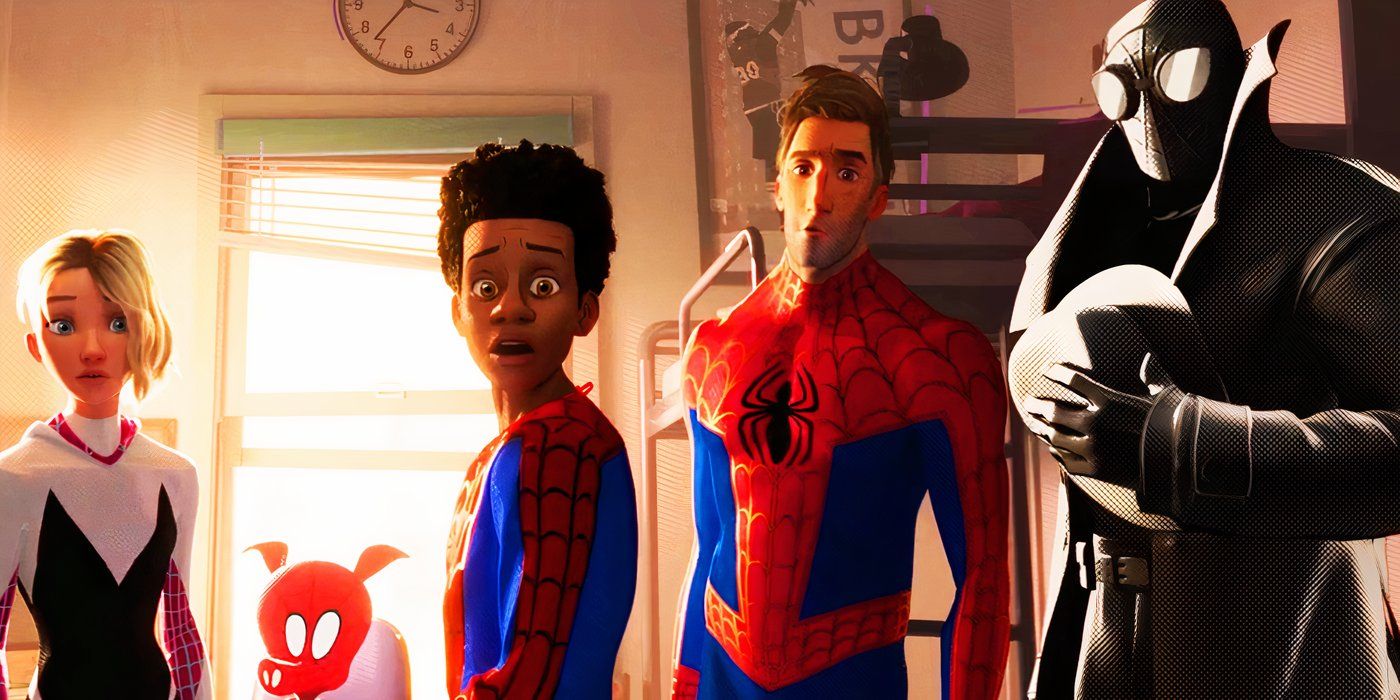Spider-Man: Beyond the Spider-Verse is poised to serve as the climax of Miles Morales’ saga, giving it an edge over Spider-Man: No Way Home, which wrapped up Tom Holland’s “Home” trilogy within the MCU. While no official release date has been confirmed, recent updates suggest Spider-Man: Beyond the Spider-Verse might debut in 2025. The original creative team responsible for the first two films is set to return for this final installment of the trilogy.
Continuing directly from the ending of Spider-Man: Across the Spider-Verse, the new film will presumably explore the intense cliffhanger where Miles Morales encounters a version of himself as the Prowler. This film not only aims to conclude the Spider-Verse trilogy but could also mark the end of Miles Morales’ narrative in the animated series, a feat not achieved by Spider-Man: No Way Home. Thus, delivering a satisfying conclusion in Spider-Man: Beyond the Spider-Verse is of paramount importance.
Spider-Man: Beyond The Spider-Verse Will Mark The End Of The Series
Fans have witnessed Miles Morales evolve through his journey in Spider-Man: Into the Spider-Verse and actively fight against tragedy in Spider-Man: Across the Spider-Verse. The anticipation surrounding the third installment is electric, as it will not only provide the conclusion of the animated film series but also feel significant as a definitive finale. The ending of Spider-Man: Across the Spider-Verse sets the scene for what could be an extraordinary conclusion to the trilogy.
The Spider-Verse trilogy may well be regarded as the greatest superhero trilogy ever.
If Spider-Man: Beyond the Spider-Verse meets the lofty expectations and mirrors the successes of its predecessors, it could solidify the Spider-Verse trilogy’s reputation as the finest superhero trilogy ever created. The first installment garnered an Academy Award for Best Animated Feature, while Spider-Man: Across the Spider-Verse received a nomination, albeit losing to The Boy and the Heron. Box office performance has trended upward from the first to the second film, paving the way for Spider-Man: Beyond the Spider-Verse to potentially become the highest-grossing film of the trilogy.
|
Spider-Verse Box Office Performance |
Opening Weekend |
Final Worldwide Total |
|---|---|---|
|
Spider-Man: Into the Spider-Verse |
$35,363,376 |
$375,464,627 |
|
Spider-Man: Across the Spider-Verse |
$120,663,589 |
$681,222,435 |
The Unique Structure of the Spider-Verse Trilogy vs. the MCU Trilogy

The trilogy of Miles Morales distinguishes itself from Peter Parker’s “Home” trilogy by providing a truly conclusive narrative. While Spider-Man: No Way Home concludes a chapter for Peter Parker, it does not offer a concrete ending to his arc. The storyline ends with him poised for a new adventure, leaving many threads unresolved. In contrast, Spider-Man: Beyond the Spider-Verse aims to deliver a more definitive closure.
The MCU’s Spider-Man trilogy is also unique in that it marks the first series to reach a fourth installment, following the premature end of Raimi’s series and the absence of a third film in The Amazing Spider-Man franchise. Should this new era of Peter Parker in the MCU introduce Miles Morales, it would make sense for Spider-Man: Beyond the Spider-Verse to act as the final chapter in Miles’ animated narrative.
The Spider-Verse Franchise Will Continue

Although the Spider-Verse trilogy is concluding, the overall franchise will continue to expand. One of the most anticipated spinoffs is the Spider-Noir live-action series for Amazon Prime, with Nicolas Cage portraying the title role. Despite currently lacking a release date, excitement is building. Additionally, a film focused on Spider-Woman, featuring Gwen Stacy, is on Sony’s agenda, along with plans for the eventual live-action debut of Miles Morales.
Even though Nicolas Cage will star in Spider-Noir, this iteration is not the same Spider-Man Noir from Spider-Man: Into the Spider-Verse.
Furthermore, a live-action series centered around Silk was announced, but unfortunately, Silk: Spider Society was scrapped after several years of development. Regardless, Sony’s commitment to expanding its Spider-Man universe remains encouraging, even though their villain-centric films have not enjoyed consistent success. The Spider-Verse films have dazzled audiences, and with Spider-Noir on the horizon, the potential for more captivating stories is exciting. As Tom Holland’s fourth installment in the series potentially revisits the multiverse, the future possibilities are limitless.
Miles Morales’ initial two Spider-Verse entries are widely regarded as masterpieces within the superhero genre, whether animated or live action. With Spider-Man: Beyond the Spider-Verse tackling the ambitious task of concluding the trilogy, this film has the potential to become a landmark entry in the history of Spider-Man films, offering an advantage over Spider-Man: No Way Home, as it will likely deliver a definitive end to Miles Morales’ tale.




